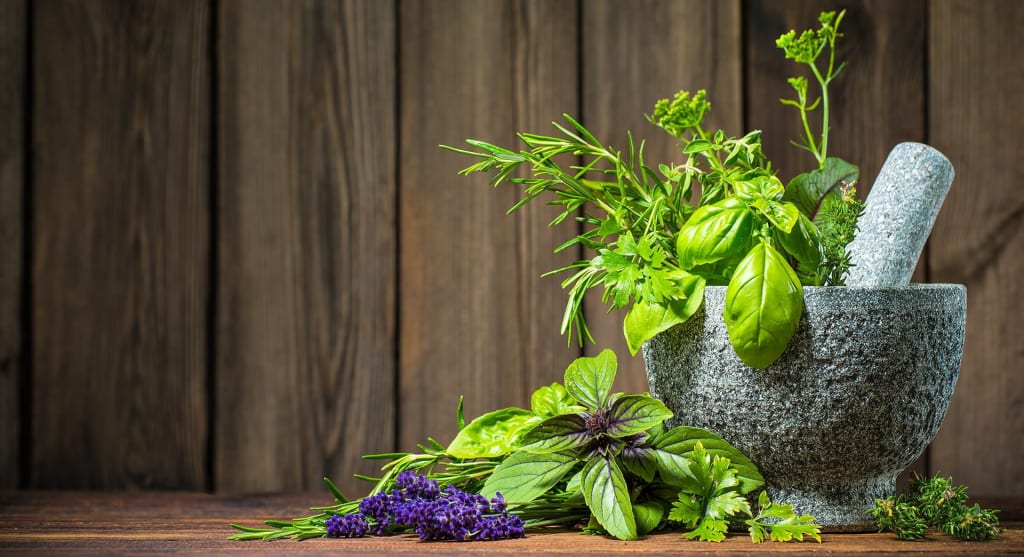How Various Herbal Plants Can Improve Our Health & Well-being
How herbal plants such as kratom can effect your overall health positively.

Herbal plants have been a cornerstone of traditional medicine for millennia, with various cultures relying on their medicinal properties to treat a wide range of ailments. From the ancient practices of Ayurveda and Traditional Chinese Medicine to the herbal remedies used by Native American tribes, these plants have played a crucial role in maintaining health and well-being. In recent years, there has been a resurgence in the use of herbal plants as people increasingly seek natural alternatives to synthetic drugs, driven by a growing awareness of the potential side effects associated with pharmaceutical medications.
Overview of Herbal Plants
Herbal plants are esteemed for their ability to alleviate symptoms of numerous conditions without the adverse effects often linked to synthetic drugs. Here are some commonly used herbal plants and their benefits:
1. Chamomile: Renowned for its soothing properties, chamomile is frequently used to address insomnia, anxiety, and digestive problems. Consumed as a tea or applied topically, chamomile can also help with skin irritations due to its anti-inflammatory and antimicrobial properties.
2. Echinacea: Known for its immune-boosting effects, echinacea is commonly used to prevent and treat colds and other respiratory infections. Studies have shown that it can increase the number of white blood cells, which help fight infections.
3. Ginger: A staple in both culinary and medicinal practices, ginger is used to treat nausea, indigestion, and inflammation. It has potent antioxidant properties and can be consumed fresh, dried, or in supplement form to alleviate symptoms of arthritis and muscle pain.
4. Turmeric: This vibrant yellow spice is rich in curcumin, which has powerful anti-inflammatory and antioxidant effects. Turmeric is often used to manage conditions like arthritis, digestive disorders, and liver diseases. Research suggests that curcumin can also improve brain function and lower the risk of brain diseases.
5. Garlic: Celebrated for its cardiovascular benefits, garlic helps in reducing blood pressure and cholesterol levels. Its antimicrobial properties make it effective against a variety of infections. Additionally, garlic is believed to support immune function and may reduce the severity of common illnesses like the flu and common cold.
6. Peppermint: Widely used to alleviate digestive problems such as irritable bowel syndrome (IBS), peppermint oil can also relieve headaches and muscle pain. Its menthol content provides a cooling sensation and has been shown to relax the muscles of the gastrointestinal tract.
The Science Behind Herbal Medicine
The therapeutic effects of herbal plants are attributed to their active compounds, including alkaloids, flavonoids, tannins, and phenolic acids. These bioactive substances interact with the body’s biological systems, promoting health and wellness. Scientific research continues to explore and validate the mechanisms behind these interactions, supporting the traditional uses of many herbal plants.
Kratom: A Detailed Insight
Kratom (Mitragyna speciosa) is a tropical tree native to Southeast Asia, particularly in countries like Thailand, Indonesia, and Malaysia. The leaves of the kratom tree have been used for centuries in traditional medicine to alleviate pain, boost energy, and enhance mood. Buy plant medicine Canada has gained popularity in the West as a natural remedy for various conditions, though it remains controversial.
Kratom contains several active compounds, with mitragynine and 7-hydroxymitragynine being the most significant. These alkaloids interact with opioid receptors in the brain, producing effects similar to opioids but with a different safety profile. Mitragynine is the most abundant alkaloid and is primarily responsible for kratom's stimulating effects at lower doses, while 7-hydroxymitragynine is more potent and contributes to the plant's analgesic properties.
Uses and Benefits
1. Pain Relief: Kratom is widely used as a natural alternative to opioids for managing chronic pain. Its analgesic effects make it effective in treating conditions such as arthritis, fibromyalgia, and back pain. Users often report significant relief from pain without the sedative effects associated with traditional pain medications.
2. Mood Enhancement: Many users report that kratom helps improve mood and reduce symptoms of anxiety and depression. The plant's euphoric effects are attributed to its action on the brain's opioid receptors, which can create a sense of well-being and relaxation.
3. Energy Boost: At lower doses, kratom acts as a stimulant, increasing energy levels and enhancing focus. This makes it popular among individuals seeking a natural way to combat fatigue and improve productivity. Traditional labourers in Southeast Asia have used kratom leaves for centuries to sustain energy during long working hours.
Conclusion
Herbal plants, including kratom, offer a plethora of benefits for health and wellness. They provide natural relief for various conditions and are a valuable part of holistic health practices. However, it is essential to use them responsibly, under the guidance of healthcare professionals, and be aware of potential side effects and legal regulations. As research progresses, the understanding and acceptance of herbal medicine will continue to grow, offering more people the opportunity to benefit from nature's pharmacy.
About the Creator
Albert Riddley
Buy premium lab tested kratom online Canada – Unleash the Power of Natural Healing
Enjoyed the story? Support the Creator.
Subscribe for free to receive all their stories in your feed. You could also pledge your support or give them a one-off tip, letting them know you appreciate their work.





Comments
There are no comments for this story
Be the first to respond and start the conversation.